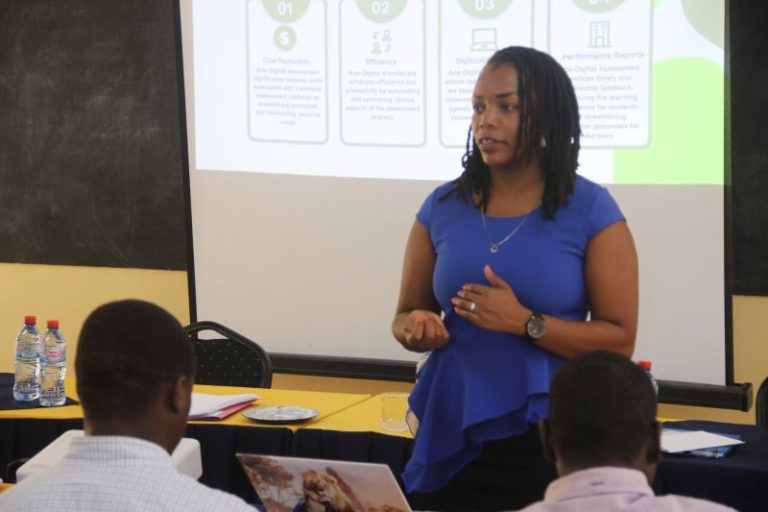TTC Principals Explore Procurement of Advanced E-Assessment Technology for Improved Learning

Principals from 38 Teachers Training Colleges (TTCs) in Kenya are collaborating to develop a comprehensive e-assessment system aimed at improving efficiency and reducing costs in exam administration and student evaluation. Traditionally, TTCs have relied on pen, paper, and printers for assessments, but recent efforts to transition to digital assessment have faced multiple challenges.
At the core of the discussion is the need for a modern e-assessment system that integrates Authoring, Digital Assessment, and e-Marking modules. This system would enable institutions to set exams digitally, allow students to take assessments online, and facilitate electronic grading by examiners. The proposal was a key agenda item during the Kenya Teachers Colleges Principals Association (KTCPA) Annual General Meeting, held at Migori TTC on February 26-27, 2025.
Why E-Assessment is Crucial for TTCs
According to Peterson Kabugi, the Head of e-Assessment at the Kenya National Examinations Council (KNEC), adopting e-assessment is not just about efficiency—it’s also an environmental necessity. He emphasized that moving away from paper-based exams reduces waste and cuts costs associated with printing, toner replacements, and printer maintenance.
“Every student currently buys two photocopier papers annually, which translates to about KES 1,200 per student. For a college with 1,000 students, that amounts to a staggering KES 1.2 million in printing costs. Additionally, toner replacements alone cost institutions about KES 300,000 yearly,” Mr. Kabugi explained. He stressed that embracing digital assessment would eliminate these expenses permanently.
TTCs Already Testing E-Assessment Despite Challenges
While all TTCs have adopted some form of e-assessment, implementation has not been without hurdles. KTCPA Chairman Wycliffe Wafula noted that institutions are at different stages of digital adoption, and although they are yet to match KNEC’s standards, they are making significant progress.
According to the Kamwenje TTC Principal, digital assessment has been piloted among second- and third-year students, yielding positive results. “We love it. It’s a game-changer, especially under the Competency-Based Curriculum (CBC), which promotes ICT literacy. E-assessment is a major step toward that goal,” he remarked.
However, Migori TTC Principal Reverend John Chivile pointed out technical failures as a major setback. “Our current systems sometimes crash at critical moments, including during national assessments,” he revealed. “This is why we are keen on investing in more reliable e-assessment platforms.”
Cost Concerns and Feasibility of Implementing E-Assessment
One of the biggest concerns among TTC principals is the cost of acquiring an effective e-assessment system. Maggie Kabira, Managing Director of Arte Springs, a digital education solutions provider, urged institutions to weigh the long-term benefits of technology adoption.
“The money students spend on printing papers annually could be redirected to acquiring the system,” she said. “Additionally, storage spaces used for rim papers could be repurposed for other academic functions.”
However, TTC principals argue that funding challenges remain a major barrier. Most public colleges rely on capitation from the government, which has been delayed this year, with disbursements for the 2nd, 3rd, and 4th quarters yet to be received.
For instance, installing an e-assessment system from Arte Springs would cost KES 1.8 million, with an annual subscription fee of KES 100,000—a significant investment for many institutions. Principals also expressed concerns that stopping students from bringing rim papers would require government approval, making the transition more complicated for public TTCs.
The Future of E-Assessment in Education
Despite the challenges, KNEC is determined to expand digital assessment beyond TTCs. Mr. Kabugi revealed that the council plans to introduce e-assessment in basic education, noting that this would reduce costs, improve exam security, and eliminate logistical challenges such as weather-related disruptions in exam distribution.
As discussions continue, TTCs are hopeful that the Ministry of Education and relevant stakeholders will provide financial and technical support to facilitate a smooth transition to fully digital assessments. With proper investment, e-assessment could revolutionize Kenya’s education system, making it more efficient, cost-effective, and environmentally friendly.
